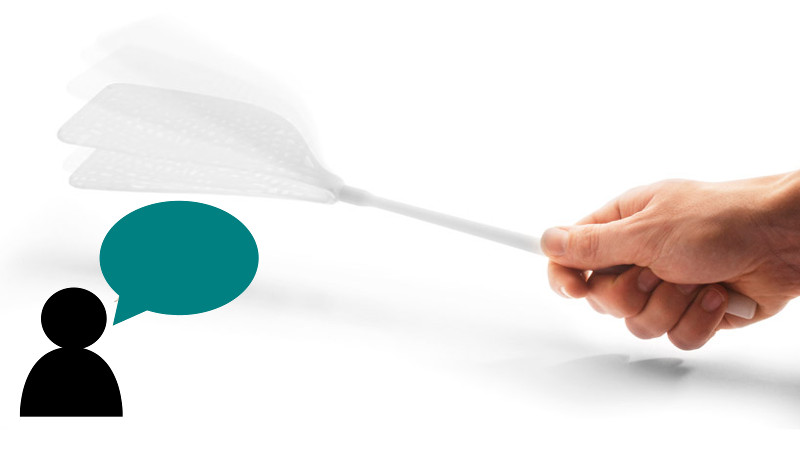
Russian censors are now blocking YouTube videos for offending user comments. Images mixed by Tetyana Lokot.
Roscomnadzor, Russia's Internet watchdog, has blocked YouTube videos before, threatening access to the entire service for users whose ISPs cannot filter HTTPS traffic. This latest case, however, sets a new precedent for the RuNet, since the video itself on the page blocked by the censors does not violate any Russian laws. Instead, it was one of the user comments under the video which got it into trouble.
The block relates to a Russian-language news video by Euronews, posted to their YouTube channel. The news story, published over a year ago, on 20 June, 2014, is titled «Боевики ИГИЛ призывают к джихаду мусульман из западных стран» (ISIS Fighters Call Muslims from Western Countries to Jihad”). Roscomnadzor took issue with the page after a court decree that, curiously, did not mandate for blocking the website, the video, or YouTube's IP address.
A Tatarstan municipal court ruled in June that it considered a single comment under the Euronews video to be “extremist material,” after a complaint from the city prosecutor. The comment, posted more than 10 months ago in October 2014 by a user called “erotic dance,” states the user's hatred for Islam and contains calls for violence against Muslims.
The court ruling explicitly states the text of the comment bears “the signs of extremist materials” and should be considered “information banned on the territory of the Russian Federation.” However, the ruling contains no calls to limit access to the Euronews video itself or the YouTube website as a whole.
Roscomnadzor seems to have interpreted the court ruling in its own peculiar way, since it added the page with the Euronews video to the banned websites registry, despite the fact that the video itself was not found to violate any laws. This also means that, because the blocking relies on the website's IP, and because YouTube uses the HTTPS encryption protocol, some ISPs in Russia will have to block all of YouTube to comply with the page ban.
The blocked news video joins a number of other YouTube pages still on the banned sites registry, but sets a unique precedent where the video owners and the platform it's hosted on essentially bear the brunt of the responsibility for user comments left on the page by a third party. This opens up more worrying possibilities for limiting free expression on the RuNet, as it allows ill-intended actors to manipulate user-generated content on online platforms to potentially make websites or individuals posting ‘undesirable’ content a target for the country's trigger-happy censors.









1 comment
i suppose this commenter was a troll. The overall policy seems to be interesting then: a provocateur posts an extremist comment on any forum, and the authorities close the forum down because of “extremist content.” Machiavelli would approve of them!